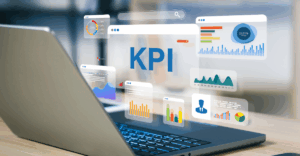Career development is an important component of total rewards, and it’s the biggest driver of engagement among Millennial employees. It gives the employee a clear roadmap which details what they’ll need to do to progress from one level to the next. This also opens up opportunities to have insightful conversations and check-ins with managers.
According to an HRsoft poll, more than a third of all survey respondents have defined career paths by job families in their organizations. While this approach is becoming widely popularized, it may not be the right fit for all companies. Nonetheless, it can be a worthwhile approach for driving engagement in the right culture. The following questions may help you to determine where your company stands in terms of career development:
- Do you have clear career paths for development and progression?
- Does your organization have a reimbursement program? If so, does it pay for all or some? And, does it have to be related to your current or future job within the organization?
- Will you pay for certifications or management programs?
- Does the organization have a “university” to help continued growth and development of all employees at all levels of the organization?
- In manufacturing or similar industries, do you offer a pay for progression option to incentivize long-term employee commitment?
Keep in mind that different generations may also expect different levels of career development opportunities and manager feedback.
Once your organization has answered the questions above, you can begin to cultivate job families and career levels. You can set up specific criteria for elements such as:
- Education and experience
- Knowledge, skills, and abilities
- Client interaction
- Scope of responsibility
- Problem solving/troubleshooting
- Judgement/managerial skills
- Decision making (with real-life examples of scenarios)
- Decision making authority
- Supervision
Each job level should have designated criteria for every element. For example, while an entry-level accountant might only need zero to two years of related experience in an office setting, a senior-level accountant might need to have five years’ experience or more.
HRsoft’s Total Rewards solution is an easy-to-use system that clearly communicates your Total Rewards – anytime, anywhere.


